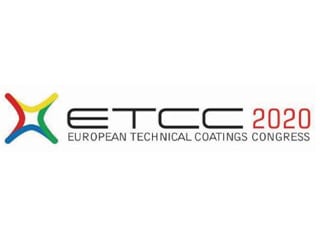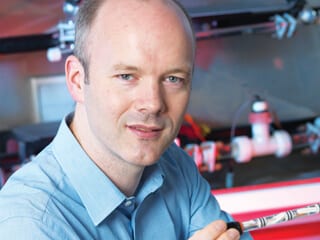
Latest News
Aarhus University, Denmark, has announced that researchers from its Department of Engineering’s ICELab are developing a new, intelligent and self-powered sensor to monitor rust found on steel reinforcement within concrete infrastructures.
The project is being conducted in collaboration with IdemoLab, at the technological service company FORCE Technology, Brøndby, Denmark, and is being funded by Innovation Fund Denmark.
According to Aarhus University the current corrosion sensors used for rust monitoring are “indicative” and “energy-demanding” in addition to being dated, error-prone, and costing up to roughly $5,500 per measuring point. In an effort to update the aging technology, Associate Professor Farshad Moradi from the University’s Department of Engineering has established project DIGIMON, which aims to develop smart, self-powered patches for updated corrosion monitoring.
The aim of this project is to develop a plaster sensor which is placed on the reinforcement and moulded into the concrete construction. The sensor and interfacing electronics will be powered by means of energy-harvesting technologies to ensure continuous monitoring of the condition of the steel.
Moradi further explained how the plaster sensors will work, describing that once developed, the sensors would use ultrasonic waves generated locally in the self-powered sensor inside the concrete to monitor the corrosion. Once information is collected from the developed plaster sensors, it would be sent to a central computer to be processed.

Latest News
ETCC2020 – the European Technical Coatings Congress, organised by FATIPEC – Federation of Associations of Technicians for Industry of Paint in European Countries, and SITPChem – Polish Association of Chemical Engineers will take place on 2–4 September 2020 in Krakow, Poland.
ETCC2020 is one of the most prestigious and important technical and scientific coatings events, creating a platform and a meeting point of industry and science, represented by institutes and universities. The congress creates the possibility of international co-operation and collecting unique knowledge about the newest materials, products, processing, equipment, research and testing. The Congress has 70 years of tradition and will cover the latest scientific and technical achievements in paints, coatings, adhesives and construction materials.
During the three days of the event there will be plenary presentations, 3–4 parallel sessions, poster presentations, and an exhibition. A “Summer School” with lectures dedicated especially for young scientists and students forms a separate part of the congress.
The speakers represent the largest companies, institutes, and universities across Europe, as well from other countries world-wide.
Further information can be found on the congress website,
www.etcc2020.org

Latest News, Uncategorized
In an article in The Times (Friday 17th January 2020) on the use of hydrogen as an alternative fuel for cars, the ICorr President, Gareth Hinds, who works on hydrogen technology at NPL, was quoted. Gareth noted that electric vehicles alone are not a magic solution to reduce carbon emissions and that hydrogen fuel also has a role to play. He also noted that the use of hydrogen fuel cells is more suitable for heavy vehicles and longer distances, making them a good option for freight transport.


